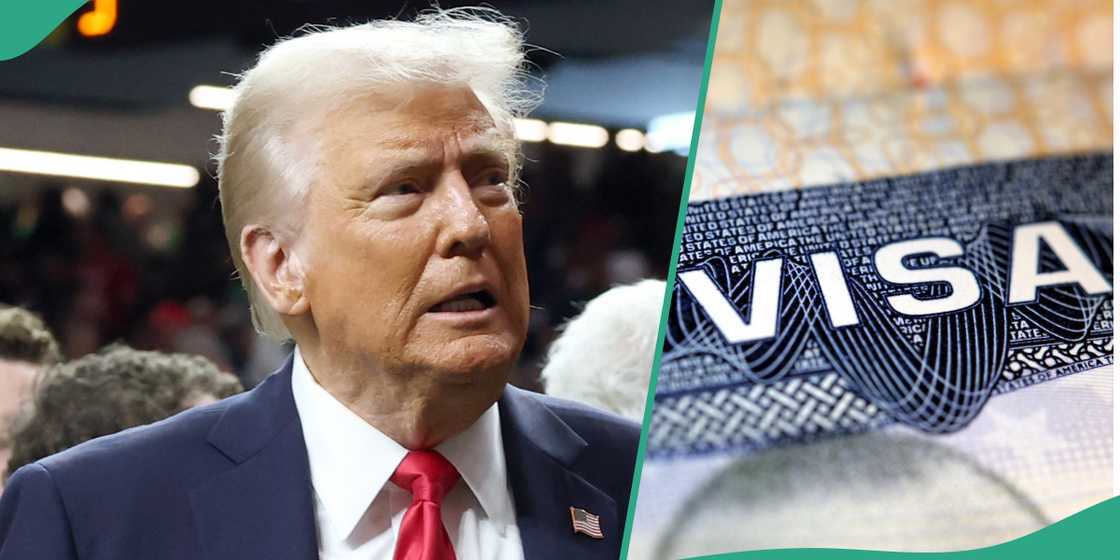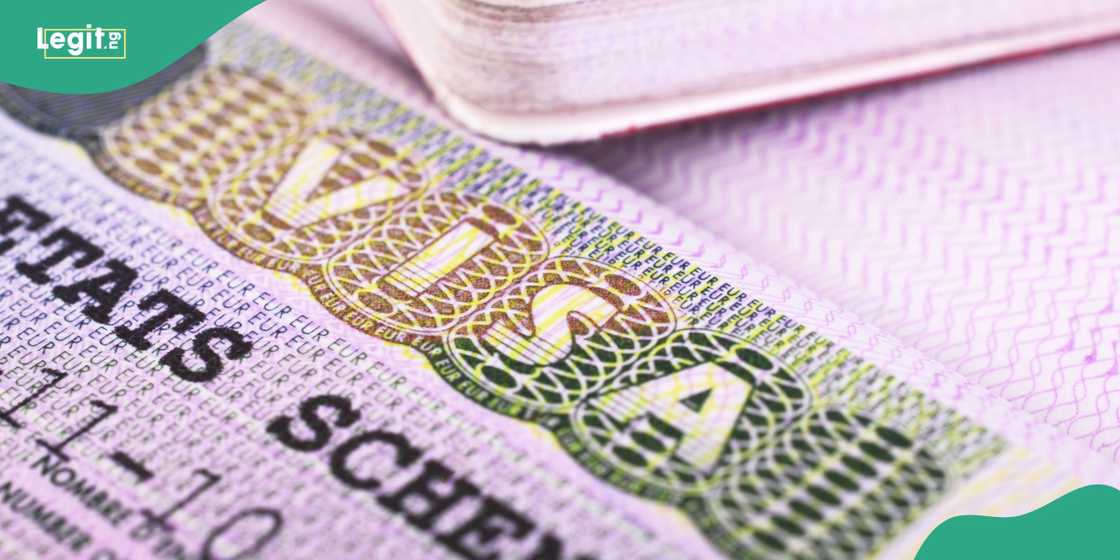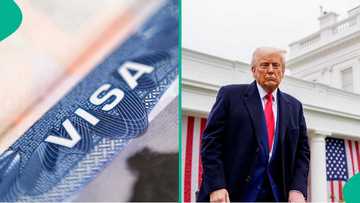Full List of Exempted Citizens Not Affected by US Travel Ban on 19 Countries
- President Trump’s travel ban on 19 countries has taken effect, but several categories of travellers remain exempt from the sweeping restrictions
- Lawful residents, dual nationals, and individuals with specific visas are among those still permitted to enter the United States
- The administration has outlined clear exemptions to avoid disrupting diplomatic, humanitarian, and sporting engagements
As President Donald Trump’s travel ban targeting nineteen countries took effect, the administration clarified that several categories of individuals would remain exempt from the sweeping restrictions.
While the policy has sparked legal challenges and humanitarian concerns, specific groups were granted permission to continue travelling to the United States under defined conditions.

Source: Getty Images
Here is a breakdown of the key exemptions.
1. Lawful Permanent Residents (Green Card Holders)
Officials confirmed that lawful permanent residents of the United States—commonly referred to as green card holders—would not be subject to the travel ban. These individuals retain legal residency status and are permitted to enter the country as usual.
2. Existing Visa Holders
Travellers who already possessed valid U.S. visas at the time of the ban’s implementation were allowed to proceed with their journeys. The administration stated that the restrictions would not retroactively affect those with approved documentation.
3. Foreign Diplomats on Non-Immigrant Visas
Foreign diplomats travelling under designated non-immigrant visa categories were also excluded from the ban. This exemption was reportedly intended to preserve diplomatic relations and international cooperation.
4. Dual Nationals Travelling on Unrestricted Passports
Dual nationals from the banned countries were permitted entry if they travelled using a passport from a country not listed in the restrictions. Authorities emphasised that the exemption applied only when the traveller used the non-banned nationality for entry.
5. Athletes and Support Staff Attending Major Sporting Events
Athletes, coaches, support personnel, and their immediate relatives travelling for major international sporting events—such as the World Cup or the Olympics—were granted exemption. The administration cited the importance of global sporting participation in its decision.
6. Immediate Family Immigrant Visas with Verified Identity
Individuals holding immediate family immigrant visas (IR-1/CR-1, IR-2/CR-2, IR-5) were allowed entry, provided they presented “clear and convincing evidence” of their identity and familial relationship. Officials noted that documentation such as DNA results could be required.
7. Adoptees
Children being adopted by U.S. citizens were not affected by the travel ban. The exemption aimed to ensure that adoption processes were not disrupted by the new immigration measures.
8. Afghan Special Immigrant Visa Holders
Recipients of Afghan Special Immigrant Visas—typically granted to those who assisted U.S. operations—were specifically excluded from the ban. The administration acknowledged their service and maintained their eligibility for entry.
9. U.S. Government Employee Visa Holders
Special immigrant visas issued to individuals employed by the U.S. government abroad were also exempt. This category included personnel who had worked in support of American diplomatic or military missions.
10. Persecuted Minorities from Iran
Immigrant visas for ethnic and religious minorities facing persecution in Iran were not subject to the travel restrictions. The administration cited humanitarian grounds for this exemption, particularly in cases involving documented threats.
While the travel ban remains controversial, these exemptions have provided limited pathways for affected individuals to enter the United States. Immigration advocates continue to monitor its impact, especially as additional countries face potential inclusion in the coming months.

Source: Getty Images
List of 19 countries on US travel ban
Legit.ng earlier reported that President Donald Trump’s newly expanded travel ban officially came into force on 9 June, triggering widespread concern over its implications for international travellers and immigration policy.
The executive order, signed earlier this month, bars citizens from twelve countries and imposes restrictions on nationals from seven others, marking a significant escalation in the administration’s immigration crackdown.
Source: Legit.ng




